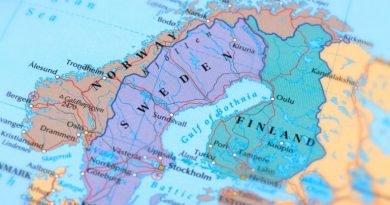Seismic Tests Could Benefit Community: Nunavut, Canada
CANADA – Nunavut Environment Minister Daniel Shewchuk says much could be gained from a federal proposal to conduct seismic tests for potential oil and gas resources in Lancaster Sound and other Arctic waterways.
But Shewchuk stressed that knowing of potential resources would not necessarily lead to future drilling.
He also said data from the proposed seismic tests could even help Ottawa determine if a national marine conservation area should be created in Lancaster Sound.
Speaking in the territorial legislature Monday, Shewchuk said it would be good to know what’s in an area before planning anything.
“I think that we wouldn’t be prudent … if [we], as the government of Nunavut, didn’t know what the economic benefits to that area could be to, in fact, assist the community, the residents that live in that area,” Shewchuk said.
The project by Natural Research Canada, which federal scientists hope to start this summer, would be an attempt to map out underwater geographical features. Beginning in August, a research vessel would send sound waves though several Arctic waterways, including Lancaster Sound.
“This is a basic research project. The Government of Canada does not drill for oil and gas,” Donald James, the chief geologist with the federal Canada-Nunavut Geoscience Office, told CBC News.
“The only way to find oil and gas is to drill, and this project is not about drilling, it’s about making a new generation … geological map.”
Potential conservation area
Lancaster Sound, located at the eastern entrance to the Northwest Passage, is also where the federal government is thinking of creating a national marine conservation area, since it is a habitat for narwhal, beluga and bowhead whales, as well as seabirds, seals, walrus and polar bears.
Parks Canada, the Nunavut government and the Qikiqtani Inuit Association are working on a feasibility study to determine whether Lancaster Sound should be designated as a conservation area.
Shewchuk has faced pressure from opponents of the seismic tests since the Nunavut Impact Review Board recommended last month that the project proceed without a detailed review, meaning it can be granted a research licence.
As the minister responsible for the Nunavut Research Institute, Shewchuk must decide whether to issue that licence or send the project back to the board for review.
Shewchuk said he will make a decision after he hears back about consultations that Natural Resources Canada has conducted in High Arctic communities. Federal officials have already visited Arctic Bay, Resolute and Pond Inlet to get public feedback on the project.
Arctic Bay Mayor Niore Iqalukjuaq said many residents in his community oppose the idea of seismic testing in their region, fearing possible impacts on wildlife and the environment.
“They plan on doing this at a time when a lot of marine mammals have migrated north,” Iqalukjuaq told CBC News on Tuesday.
James, a federal geologist, said seismic testing has taken place in parts of the Arctic for about 20 years, and it has not been proven that such work has affected marine animals in a harmful way.
Past exploration damaging: Inuit official
The Qikiqtani Inuit Association also opposes the seismic test proposal, arguing that oil and gas companies would likely waste no time in exploring any areas the seismic may identify as having oil and gas resources.
“We all remember back in the ’60s and the ’70s [when] the Government of Canada opened the High Arctic for oil and gas exploration, and the oil companies just went crazy. They did a lot of damage in the High Arctic islands,” said John Amagoalik, the Inuit association’s director of lands and planning.
“The biggest blowout in North America happened in the High Arctic, in the 1960s on Melville Island,” he added. “There was [a] blowout and it was not stopped for three months. It kept gushing for three months.”
Amagoalik said Inuit do not want such a disaster to be repeated. He said Shewchuk should not approve the seismic testing project until more information is gathered.
Drilling concerns premature: minister
Amagoalik’s concerns were echoed on Monday by Quttiktuq MLA Ron Elliott, whose constituency covers High Arctic communities. Elliott grilled Shewchuk on Monday about how the seismic data would be used.
“It sounds like if the economic opportunities outweigh the environmental opportunities in terms of preserving the wildlife there, we’re going to end up with oil and gas exporation in our area,” Elliott said in the legislature.
Shewchuk did not deny oil and gas exploration as a possibility, but he dismissed Elliott’s concerns as premature.
Any projects that may result from the seismic testing data would require a lot of further consultation from affected communities, Shewchuk added.
“I think that because you know something and you know the potential that is there, and what you have as an inventory, doesn’t mean that you are going to move in that direction,” he said.
“The communities would be very very actively and heavily involved in that, and I think we’re a long ways from that point.”



